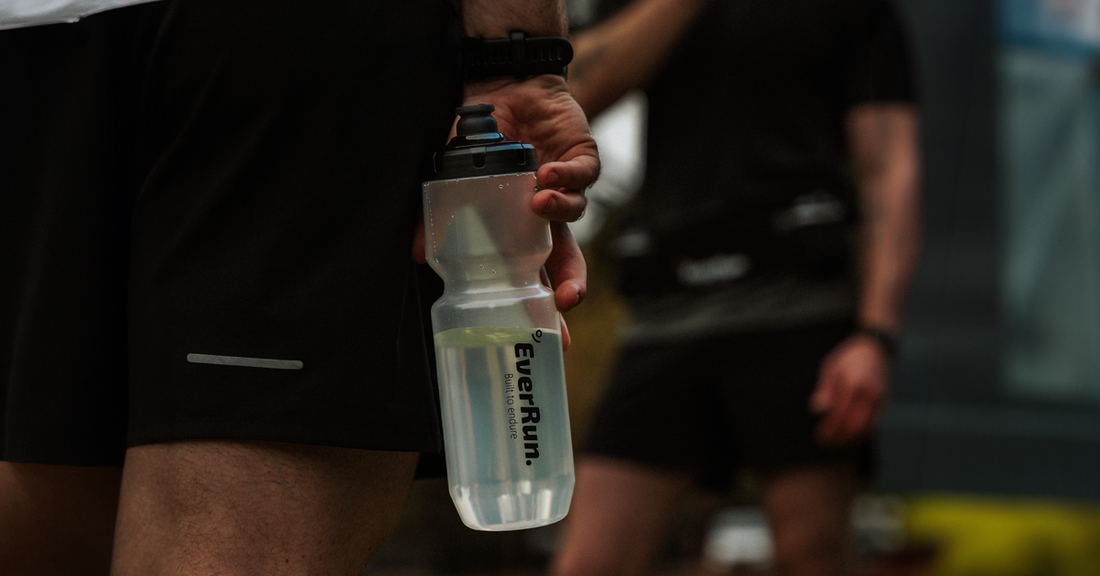
The Ultimate Magnesium Guide for Runners: Benefits, Deficiency Signs & Best Forms
If you’re serious about running - whether you’re training for your first 10K or preparing for an Ironman - you’re likely tracking your macros, electrolytes, and mileage. But there’s one mineral that gets overlooked by far too many endurance athletes: magnesium.
Magnesium supports over 300 processes in your body—including muscle contractions, energy production, nerve function, and recovery. And yet, up to two-thirds of people don’t meet their daily needs—even with a healthy diet.
For runners, that shortfall can translate into fatigue, cramps, disrupted sleep, and slower recovery.
Why Magnesium Is Crucial for Runners and Endurance Athletes
When you’re logging long runs, doing speedwork, or training in the heat, you’re burning through magnesium at a much faster rate than the average person. Here’s how magnesium directly affects performance:
Muscle Efficiency & Cramp Prevention
Magnesium helps regulate the flow of calcium in and out of muscle cells, which is critical for smooth muscle contractions. Low levels increase the risk of cramps, tightness, and spasms - especially during hot weather or high mileage weeks.
Energy Production (ATP)
Magnesium is a cofactor in converting carbohydrates, fats, and protein into usable energy. Without it, your energy system can’t function at full tilt, leading to heavy legs and early fatigue.
Improved Sleep & Nervous System Recovery
Magnesium helps calm the nervous system, lowering cortisol levels and promoting deeper sleep. This translates into better hormonal regulation, muscle repair, and mental focus on the next day's run.
Reduced Inflammation & Faster Recovery
After your long runs or races, magnesium helps regulate inflammation, fluid balance, and muscle recovery - especially when paired with electrolytes and quality sleep.
Signs You May Be Magnesium Deficient
Runners are particularly at risk for magnesium loss through sweating, urine, and dietary gaps. You might be low if you notice:
- Muscle cramps or spasms
- Fatigue despite rest
- Poor sleep quality
- Headaches or irritability
- Slow post-run recovery
- Brain fog or low mood
Even a mild magnesium deficiency can interfere with performance.
Best Natural Food Sources of Magnesium for Runners
Include magnesium-rich foods in your training diet to maintain healthy levels:
- Leafy greens (spinach, kale)
- Nuts and seeds (almonds, pumpkin seeds, cashews)
- Legumes (black beans, edamame)
- Avocados
- Whole grains (oats, quinoa)
- Bananas
- Dark chocolate
Still, intense training often increases your magnesium demand—making supplementation worth considering.
Best Forms of Magnesium for Athletes
Not all magnesium supplements are created equal. Some are better absorbed than others, and each has unique benefits:
1. Magnesium Citrate
- Highly bioavailable
- Helps restore magnesium levels
- May relieve occasional constipation
- Great for general use and recovery
2. Magnesium Glycinate
- Bound to glycine (an amino acid)
- Known for its calming, sleep-promoting effects
- Gentle on the stomach
- Ideal for evening use, stress, and recovery
3. Magnesium Malate
- Bound to malic acid (in apples, wine)
- Supports energy metabolism
- Less likely to cause digestive issues
- Recommended for fatigue and recovery
4. Magnesium L-Threonate
- Penetrates the blood-brain barrier
- May improve focus, memory, and cognitive function
- Useful for mental clarity during race prep or taper
5. Magnesium Orotate
- Supports heart health and energy production
- Popular among competitive athletes
- Higher price point, but promising benefits
- Best for endurance athletes with cardiovascular strain
Forms to Be Cautious With
- Magnesium Oxide: Poorly absorbed; often used as a laxative
- Magnesium Sulfate (Epsom Salt): Great for soaking sore legs, but not effective for raising internal levels
- Topical sprays: Popular but lack strong evidence for boosting magnesium in the bloodstream
How Much Magnesium Do You Need?
Most adult runners need around:
- 320 mg/day (women)
- 400–420 mg/day (men)
If you're training hard or sweating a lot, your needs could be higher. Check your supplement label - and avoid overdoing it, as high doses can cause diarrhea or GI discomfort.
Final Thoughts: Should Runners Take Magnesium?
If you're a runner or endurance athlete, the answer is probably yes—especially if you’re dealing with cramps, poor sleep, or low energy despite good training and nutrition.
Magnesium supports nearly every system involved in performance and recovery. Whether you increase it through food, supplements, or both, it’s a low-risk, high-reward strategy for better training outcomes.
Need help choosing the right magnesium supplement?
At EverRun, we’re building performance-driven recovery systems for serious runners. Stay tuned for our upcoming hydration and recovery products - built with clean, effective ingredients (like magnesium) that your body actually uses.



